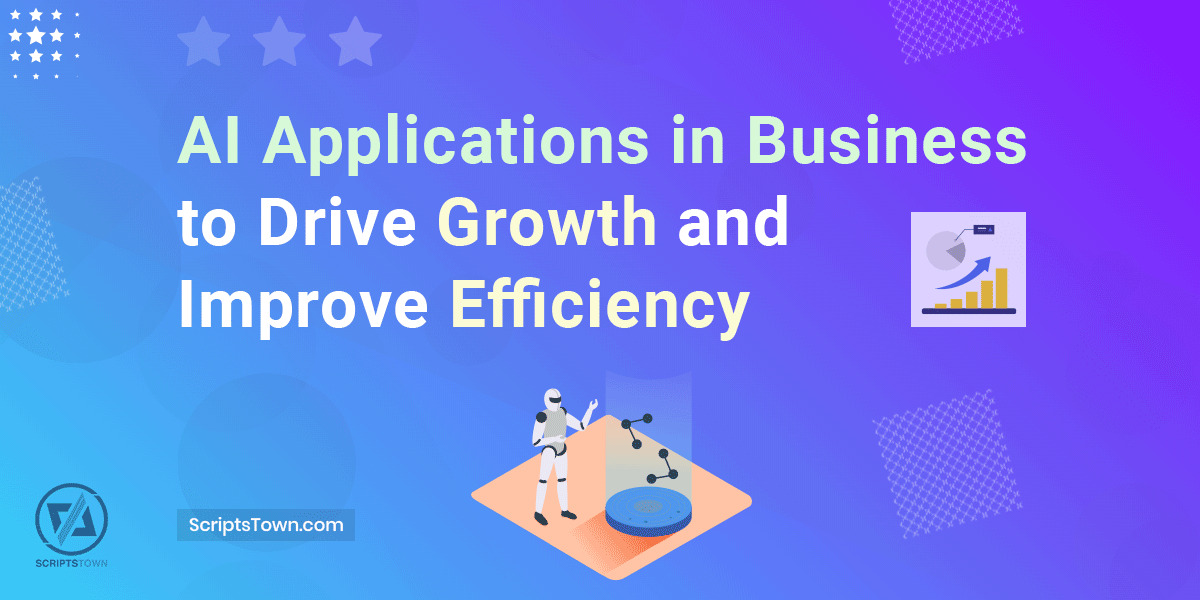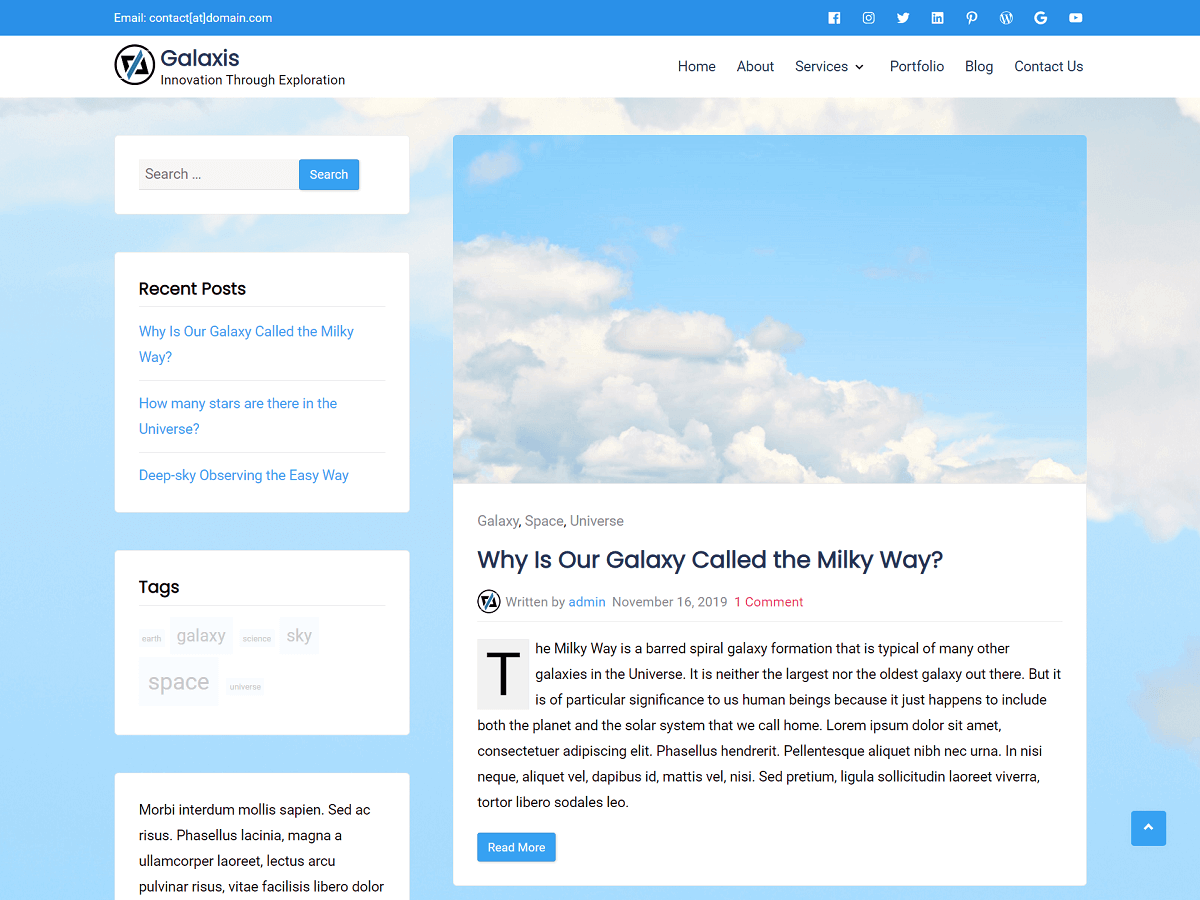Businesses worldwide seek efficiency gains and sustainable growth. Artificial Intelligence (AI) offers excellent solutions, opportunities, and tools to achieve these goals. AI has many useful applications to drive growth for businesses across industries. One widely-used AI application is text generation, which also led to the development of tools like an AI detector that can distinguish between AI-generated and human-written content.
This technology, along with many other AI-powered tools, offers businesses diverse ways to improve their operations and stay competitive in the market.
Using AI, a business can analyze large amounts of complex datasets and reveal valuable insights, improve decision-making processes, automate processes and repetitive tasks, forecast demand, reduce workload, improve customer experiences, and more.
This article explores how a company or business can effectively use AI to improve its operational efficiency and boost productivity.
Predictive Analytics and Demand Forecasting
Predictive analytics uses machine learning algorithms and statistical models to analyze historical data and identify patterns. AI-driven predictive analytics allow businesses to forecast product demand, customer purchasing behaviors, sales volumes, market trends, and inventory needs based on historical data analysis.
AI algorithms can accurately predict future demand for products or services. Not only based on historical sales data or customer behavior patterns, they can also analyze and consider external factors such as weather and economic conditions.
A major advantage over traditional forecasting methods is AI prediction models continuously learn and improve accuracy over time.
- Improve inventory management by predicting demand fluctuations.
- Optimize production schedules and resource allocation based on forecasted demand.
- Supply chain efficiency by anticipating demand and aligning logistics operations.
Decision Support and Resource Optimization
AI-powered decision support systems assist businesses in making informed decisions. These AI systems can process and analyze complex data sets from various sources, which include financial records, operational metrics, and customer information.
This data-driven approach helps organizations move away from relying solely on intuition. Instead, they can make decisions based on empirical evidence.
AI systems can also evaluate multiple scenarios, identify potential risks, and recommend optimal solutions for resource allocation, scheduling, and process optimization.
- Simulate multiple “what-if” scenarios with variables and constraints to evaluate potential outcomes before implementing changes.
- Assess risk, provide recommendations, and support strategic business decisions.
- Identify inefficiencies, bottlenecks, and areas for improvement.
- Improve scheduling and planning for projects, tasks, and workforce management.
Example: A manufacturing company can utilize AI-powered decision support systems to analyze production data, identify bottlenecks, and recommend process improvements or equipment upgrades to optimize resource utilization and increase efficiency.
Uncover New Insights and Market Patterns
Over time, businesses often accumulate large volumes of unstructured data. It includes customer reviews, emails, product queries, social media conversations, comments, forum posts, call transcripts, feedback, survey responses, and other source of data.
It can be challenging to analyze such unstructured data manually. AI can help organizations unlock the value of this data. It can process and interpret this data to identify unexpected market patterns, consumer trends, and untapped opportunities.
- With AI vision, businesses can interpret images/videos, which is useful for applications like quality control in manufacturing.
- AI can automatically categorize and tag any data for efficient knowledge management.
Content Classification and Sentiment Analysis
Other useful AI applications in business include content classification and sentiment analysis. AI can automatically classify and categorize vast amounts of text, image, and video content based on predefined rules or machine learning models. This capability is invaluable for content management, moderation, and analysis.
Additionally, sentiment analysis techniques can extract and quantify emotions, opinions, and attitudes expressed in text or multimedia content. They provide valuable insights for brand monitoring, customer feedback analysis, and marketing campaigns. This way, a business can understand customer satisfaction and make data-driven improvements.
- Automate the classification of large volumes of text, image, and video content.
- AI tools such as Bypass AI can detect spam. It can moderate and filter inappropriate or irrelevant content.
- Analyze customer feedback and extract sentiments or product perception in the market.
Example 1: An AI system can analyze customer feedback to recommend pricing strategies, product improvements, or marketing campaigns tailored to specific customer segments.
Example 2: A social media platform can use AI to automatically classify user-generated content, and filter out inappropriate or harmful material. It can also analyze sentiment to understand user reactions and preferences. This can help the social media platform to improve the user experience and tailor content recommendations.
AI-Powered Marketing and Advertising Campaigns
One of the most useful applications of AI in marketing is the creation of dynamic marketing and advertising campaigns in real-time.
AI-powered marketing platforms can dynamically adjust advertising campaigns in real-time based on customer behavior, demographics, and market trends. It includes ad placement and delivery in real-time. For instance, if a particular advertisement is performing poorly on some marketing channel, the AI system can automatically reallocate resources to more effective channels or modify the content to resonate better with the target audience.
The marketing content AI generates is both dynamic and compelling. AI-powered content creation tools can take data from multiple sources, including customer feedback, industry trends, and competitor analysis, to produce highly relevant and engaging content for various marketing channels, such as social media, website copy, and email campaigns.
Example: An AI system trained on customer reviews and product descriptions can generate personalized product recommendations, tailored social media posts, and targeted email campaigns, all while maintaining a consistent brand voice and messaging.
This level of agility and responsiveness enables businesses to maximize their marketing spend and achieve better returns on investment.
Automate Repetitive Tasks and Reduce Workload
AI can automate various repetitive, time-consuming, and rule-based tasks. This includes data entry, document management, and routine administrative tasks.
It can free up human resources to focus on more complex and strategic activities. It reduces workloads and enables businesses to operate more efficiently.
- Using AI, businesses can streamline various processes and reduce manual efforts.
- Improve accuracy and consistency by eliminating human error in routine tasks.
- Reallocate human resources to higher-value activities and strategic initiatives.
Example: An Insurance company can use AI to automate data entry and processing for claims. This can reduce the workload for employees and minimize errors with faster and more accurate claims processing.
Accelerate Research and Development
AI accelerates research and development processes. It can lead to faster innovation cycles, product development, and scientific discoveries.
Machine learning models can continuously ingest and learn from real-world data, rapidly adapting products and processes. This AI-driven iterative cycle compresses innovation timelines. It allows businesses to bring optimized solutions to market quickly. This can provide a competitive advantage to businesses in the market.
- Identify patterns and insights for research and development initiatives.
- Aid in experiment planning and data analysis.
- Product development: AI assists in design, prototyping, and testing.
- Computational power for simulations: AI can leverage immense computing power to run complex simulations, testing scenarios that would be impossible in the real world.
- Intelligent experimentation: AI can autonomously run experiments, analyze results, and iteratively modify parameters to achieve optimal outcomes more efficiently.
- New business models: AI opens up new business models such as intelligent robotics and AI-powered software solutions.
Complex Tasks, Continuous Learning
AI systems can be trained to handle highly complex tasks that require expertise, pattern recognition, continuous learning, and adaptation. Through machine learning and deep learning techniques, these systems can adapt and improve over time.
- Combine techniques like deep learning, reinforcement learning, and transfer learning.
- Continuously improve performance and adapt to new situations.
- Useful in domains with constantly changing conditions.
Some examples include:
- Recommending personalized content to millions of users (e.g., YouTube).
- Powering speech recognition services (e.g., Siri, Cortana, Google AI Assistant).
- Learning to play complex games like Go (DeepMind’s AlphaGo).
- Transcribing speech into text, powering facial recognition software, cloning voices with high accuracy, generating videos from text prompts and images, etc.
Improve Employee Training Programs with AI
AI can improve employee training by creating personalized, interactive content. It can study training materials and employee data to make lessons tailored to how each person learns best and what they struggle with.
Using AI, a company can also update its training content regularly. It can analyze the latest industry trends and incorporate them into training materials. This ensures employees learn the most current information and skills.
Onboarding checklist templates serve as structured guides to help new users or employees acclimate to AI tools and processes. Using these checklist templates can provide a clear and consistent framework, helping to cover all necessary steps and reducing the learning curve. For instance, platforms like Candu offer customizable onboarding templates that can be tailored to specific business needs, so users receive relevant and timely information.
AI can also predict future training needs based on performance data. It can identify skill gaps and suggest relevant training programs. This proactive approach can help companies stay ahead of the competition by continuously upskilling their workforce.
Instead of creating one-way presentations, AI can create two-way conversations with virtual assistants. Employees can practice sales calls or customer service skills by roleplaying with AI. The AI can also analyze their performance and provide feedback to improve.
Moreover, AI can transcribe, translate, and subtitle training videos in multiple languages. This could allow global teams to access the same standardized materials in their native language. Expanding training resources can increase consistency across an organization.
Examples of Improving Training Programs with AI
Here are some examples of making use of AI to improve training programs:
- For call center training, the AI could transcribe and analyze thousands of past customer conversations. It can identify common issues and knowledge gaps to generate targeted lessons, quizzes, and roleplaying scenarios.
- When training new engineers, the AI can study their code submissions to personalize lessons focused on areas they struggle with, like some programming concepts or tools.
- An AI sales training system could study top performers’ successful sales calls to create simulations. Employees could practice sales pitches with the AI, getting scored based on some factors like persuasiveness, handling objections, and more.
- For new product managers, AI can analyze their project documentation and decisions to identify knowledge gaps in areas like market analysis or feature prioritization. It can then create personalized training modules with case studies based on the company’s past successful products, ensuring they learn practical skills relevant to their specific role.
Customer Service Automation and Virtual Assistants
Chatbots and virtual assistants powered by natural language processing can provide 24/7 customer service and handle basic customer requests independently.
Example: Banking customers can check account balances, pay bills, or find answers to common questions through online chatbots without speaking to an agent. This allows customer service staff to focus on more complex issues.
- Handle inquiries, resolve issues, and provide personalized recommendations.
- Escalate complex issues to human agents when necessary.
Furthermore, AI enables proactive customer service. It can analyze patterns in support conversations and transactions. AI algorithms can predict issues customers may face.
Example: AI system may detect that a certain product frequently malfunctions after a year of use. The company can then launch a preventive customer care program like free inspections to catch defects early. Such proactive solutions improve customer experience and reduce support costs in the long run.
Industry-Specific Applications
AI has numerous industry-specific applications to address specific challenges. Here are some examples of industry-specific AI applications:
- Healthcare: AI-powered systems can interpret medical images, predict illness/disease risk, and assist in disease diagnosis, and patient monitoring. It can help in personalized medicine, and drug discovery, speed up clinical trials, and support clinical decisions by healthcare professionals. AI can quickly analyze patient data and predict outcomes, reducing the time and cost of clinical trials.
- Banking and Finance: AI can detect fraud, analyze investment opportunities, provide personalized financial advisory, assess credit risk, and automate payment processes.
- Retail: AI can power smart pricing, targeted promotions, inventory optimization, and personal shopping experiences.
- E-commerce: AI can enable personalized shopping experiences, virtual assistants, product search optimization, dynamic pricing strategies, and so on.
- Manufacturing: AI can predict equipment failures, enable predictive maintenance, automated inspection, supply chain visibility, and optimize production processes.
- Transportation and Logistics: It includes route optimization, fleet management, and predictive maintenance for vehicles and assets.
Conclusion
To conclude, AI offers a wide range of applications across various industries. This includes AI applications like task automation, data analysis, and strategic decision support. Businesses that effectively integrate AI into their operations improve their efficiency, optimize processes, reduce costs, and achieve long-term success in their respective markets.
AI also has many useful applications in the field of cybersecurity. We have a detailed article on using AI in cybersecurity to overcome business security challenges.











